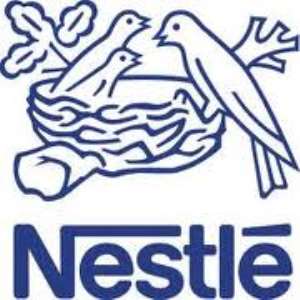
Accra, June 18, GNA - The media has been tasked to give health issues, especially nutrition, the necessary attention.
At a training workshop for the media on the Role of Fortification in addressing Micronutrient Deficiency in Ghana, a lecturer of Media and Communication Studies at the School of Communication Studies of the University of Ghana, Dr. Etse Sikanku, said the media must educate the public on health issues through research, advocacy and reporting on general health and well-being.
He said research has shown that the media allocate less time to health issues and urged the media to do more in the area of education and awareness creation on health issues, especially on nutrition.
The training was organised by Nestlé Ghana, with the aim of enhancing the capacity of the media to help address the issue of micronutrient (essential vitamins and minerals) deficiency in sub-Saharan Africa.
Micronutrients are essential for growth and development; however, deficiencies or inadequate dietary intake remain a challenge for an estimated one-third of the global population.
Poor nutritional status, in general, is associated with the increased prevalence of anaemia, pregnancy and delivery problems, and increased rates of intrauterine growth, retardation, low birth weight, and prenatal mortality.
The consequences of long-term iron deficiency include impaired mental development in children, decreased physical work capacity and impaired immune function.
Young children and pregnant women are particularly vulnerable to iron deficiency because they need higher levels of the mineral for growth.
However, researchers say food fortification is greatly responsible for the eradication of diseases such as goitre and rickets and suggest that developing countries should implement successful food fortification programmes to mitigate under nutrition menace.
The UN and the WHO estimate that two billion people around the world, mostly young children and women of child-bearing age, suffer from deficiencies in micronutrients.
Mrs Freda Duplan, the Country Manager for Nestlé Ghana, a leading Nutrition, Health and Wellness Company, said the company was committed to providing educational programmes for good nutrition and feeding practices.
The Human Resource Manager, Antoinette Arkoh, said, Nestlé also sought to help the media and healthcare professionals to have a positive impact on the future generations in the area of nutrition.
She announced that Nestle had no plans of laying off workers and explained that the company had an efficient system running.
Speaking on the topic of 'Micronutrient Deficiency,' Dr Gloria Otoo, a lecturer at University of Ghana, Nutrition and Food Science Department, stated that: 'Iron deficiency and anaemia reduce the work capacity of individuals and entire populations, bringing serious economic consequences and obstacles to national development.'
She, therefore, reiterated the call on the media to take health issues a bit more seriously because it had dire consequences on society, especially, on the most vulnerable, the poorest and the least educated who were disproportionately affected by iron deficiency and stood to gain the most by its reduction.
GNA




 Whoever participated in the plunder of the state must be held accountable – Jane...
Whoever participated in the plunder of the state must be held accountable – Jane...
 A vote for John and Jane is a vote to pull Ghana from the precipice of destructi...
A vote for John and Jane is a vote to pull Ghana from the precipice of destructi...
 I’ll repay your abiding confidence with loyalty, understanding and a devotion to...
I’ll repay your abiding confidence with loyalty, understanding and a devotion to...
 ‘I’ve learnt deeply useful lessons for the future' — Serwaa Amihere breaks silen...
‘I’ve learnt deeply useful lessons for the future' — Serwaa Amihere breaks silen...
 I’m sorry for the embarrassment – Serwaa Amihere apologises for leaked sex video
I’m sorry for the embarrassment – Serwaa Amihere apologises for leaked sex video
 Dumsor: Matthew Opoku Prempeh not in charge of Energy sector – Minority
Dumsor: Matthew Opoku Prempeh not in charge of Energy sector – Minority
 Adu Boahen’s murder: Police arrest house help who was in possession of deceased’...
Adu Boahen’s murder: Police arrest house help who was in possession of deceased’...
 Akufo-Addo nominates Felicia Attipoe as Tema West MCE
Akufo-Addo nominates Felicia Attipoe as Tema West MCE
 Election 2024: I can't have someone I defeated twice as my successor – Akufo-Add...
Election 2024: I can't have someone I defeated twice as my successor – Akufo-Add...
